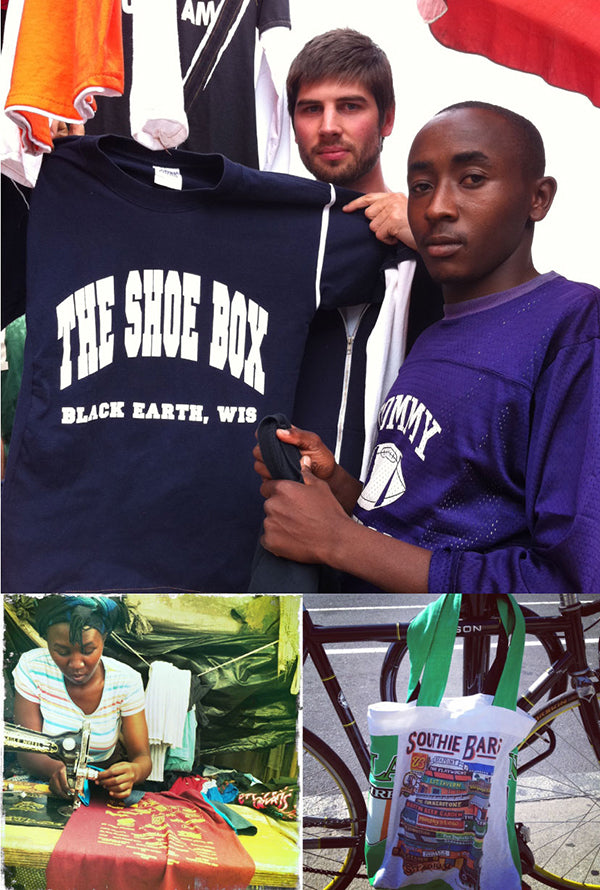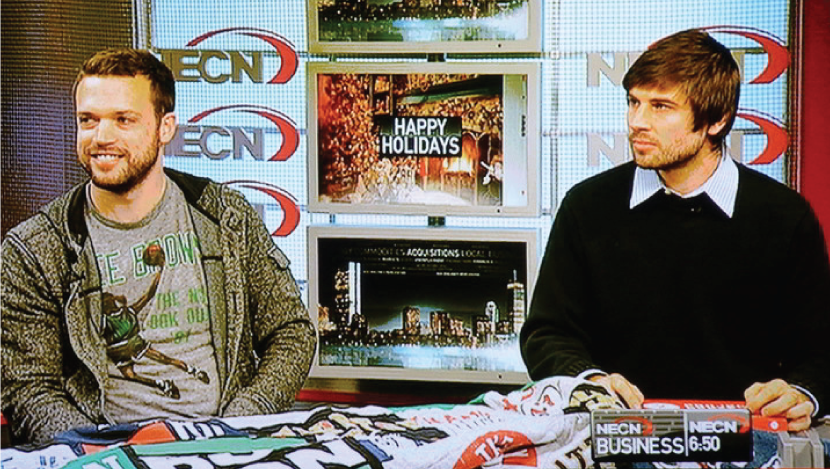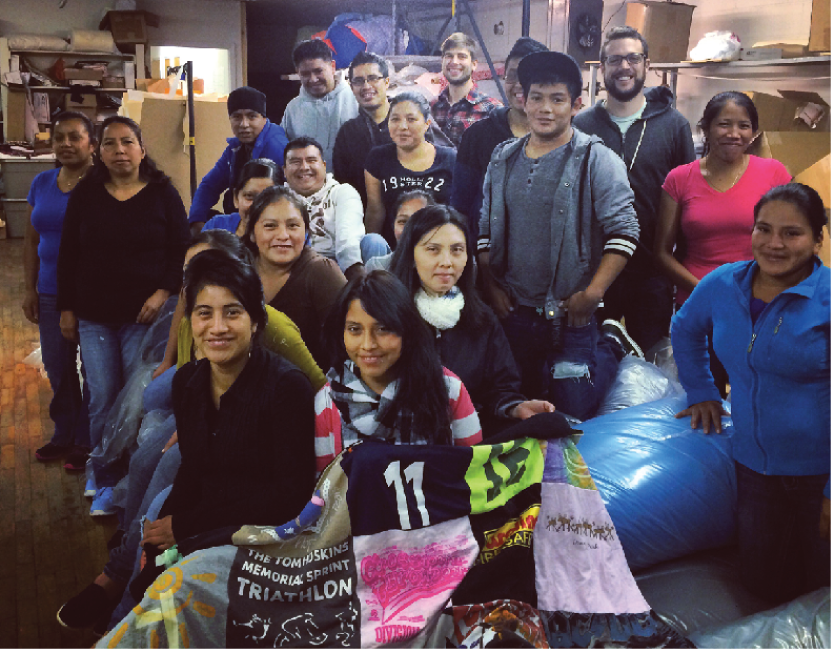The Project Repat story starts in Nairobi, Kenya, where Project Repat co-founder Ross Lohr was doing non-profit education work. One day after sitting in traffic for two hours, he discovered the cause of the jam he was stuck in was an overturned fruit and vegetable rickshaw pushed by a Kenyan man wearing a t-shirt that said “I Danced My Ass Off at Josh’s Bar Mitzvah”. An odd sight for most but this is actually not out of the ordinary. A number of t-shirts from non-profit and for-profit American companies get sold off and sent overseas. These are known as "castaway t-shirts" in which many people in the community wear.
An idea bloomed and Lohr began working with Kenyan artisans to design new products out of castaway t-shirts, including bags, scarves, and re-fabricated t-shirts. Those products were “repatriated” (or returned to the country of origin) back to the United States and sold to raise money for non-profits working in East Africa. Back in the States, when trying to sell these upcycled products at markets in Boston, Lohr and co-founder Rothstein quickly discovered the difference between a “good idea” and a real business. While potential customers liked the idea of a repatriated upcycled t-shirt bag, they didn’t like it enough to actually buy it. What they found is that customers asked for, time and time again, an affordable t-shirt quilt.
That was when their idea grew: instead of shipping goods all around the country, why not create fair wage jobs in the United States and a product that has a lot of meaning for customers. As they say...the rest is history. Rather than ‘repatriating’ t-shirts back to the United States, Project Repat now creates a high quality, affordable t-shirt quilts with minimal carbon impact that ‘repatriates’ textile job back to the United States.
How much good can a t-shirt quilt do? Well, did you know that in 1980 almost all of our t-shirts were made in the United States? Thousands of textile jobs have since gone overseas and Project Repat is helping to bring them back to the United States. 5% of trash on Earth is used textiles. The average American trashes 65 pounds of clothing per year. How else is this product making a difference? The t-shirt quilt is backed with PolarTec fleece made out of recycled plastic bottles. Each yard of fabric recycles 23 plastic bottles that would otherwise end up in landfills! Amazing, right?
Precision Sportswear and Opportunity Threads are the two production companies Project Repat works with. While most of the textile jobs in Fall River have gone overseas as corporations sought cheap labor and lax regulation, Precision Sportswear has been able to succeed by specializing in custom work and smaller production runs for made-in-U.S.A. companies. Workers earn a fair and living wage, full benefits, and paid vacation and holidays. With a great working environment and top quality workmanship, Opportunity Threads in Morganton has “repat-riated” some textile jobs back to the United States. Each worker at Opportunity Threads is part of a collaborative working model, where each employee adds input to the production process and has the opportunity to earn an ownership stake in the company.
So the best part for Project Repat? You send in your own t-shirts to be used as the materials for the quilt! This is an awesome way to preserve some of your favorite memories instead of just storing them in a closet somewhere. How many shirts you need to send in depends on the size of the quilt.
Lap - 16 sides of shirts
Twin - 24 sides of shirts
Full - 30 sides of shirts
Queen - 49 sides of shirts
King - 64 sides of shirts
Prices range from $75-250. Get yours today and be a part of creating more textile jobs in the United States. Devour the details of repatriating with Project Repat!




No comments:
Post a Comment